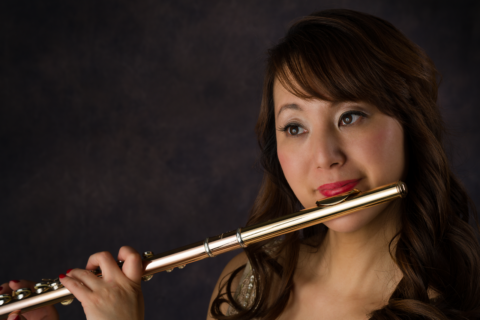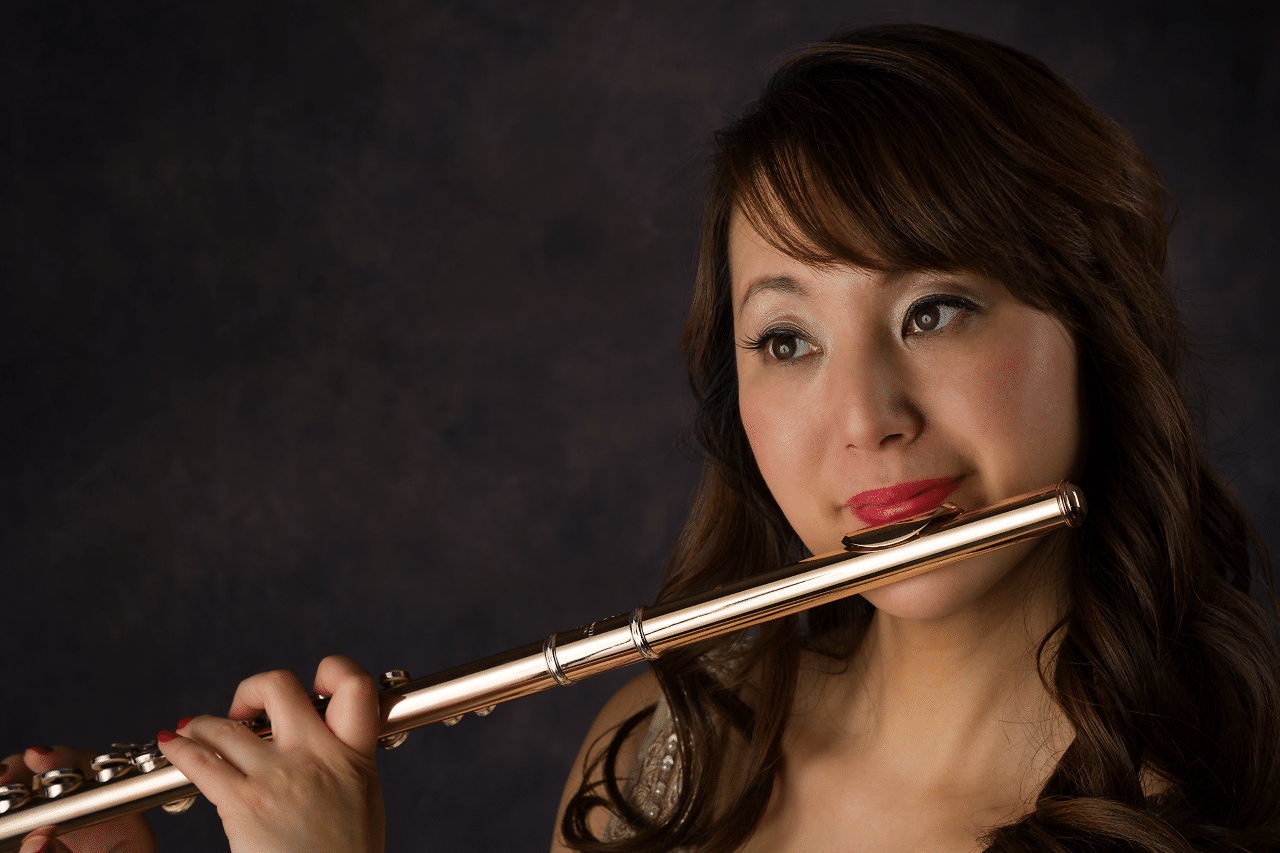Ms. Hideko Amano discovered the sound of her future during a third grade music class back home, in her native Japan. “I became mesmerized by the flute solo of the “Morning” in Peer Gynt Suite. From then on, I nagged my parents to buy me a flute.”

CMPI Flute Faculty Hideko Amani.
That single moment led to an illustrious career as a performing artist, pedagogue, and mentor to countless young musicians, including two winners and four finalists of the CSO Crain-Maling Foundation Young Artists Competition and three CMPI fellows. Amano has performed in some of the world’s greatest concert venues, including Chicago’s famed Symphony Center, as well as received prestigious faculty appointments, and spearheaded several creative artistic projects, among many other accomplishments.
Amano’s parents granted her wish and purchased a flute for her after the family arrived in the United States. Then twelve-year-old Amano readily engaged in music lessons, joined a school band, and won numerous young artist competitions. However, the decision to become a professional flutist did not transpire until her sophomore year of high school. “Attending Northwestern University’s high school summer camp in the 80’s was the turning point.” The atmosphere of the summer camp—the excitement of being on college campus, surrounded by new friends with similar aspirations, immersed in music and guided by excellent instructors—played a pivotal role in committing to a musical path.
The good fortune of meeting transformative teachers continued in to college. She studied with Paula Robinson at the New England Conservatory, l’Ecole Normale de Paris, and privately in Chicago and Paris with Mathieu Dufour, currently the principal flute of Berlin Philharmonic Orchestra. Reflecting on her experience as a student, Amano especially remembers the encouragement she received along her journey. “Becoming a musician is always a difficult path, never a straight line. When I face a hardship, such as losing an audition or feeling insecure, I can hear Paula Robinson’s voice: Listen and follow your soul.”
These nurturing, committed teachers made it possible for Amano to meet the exacting expectations, a recipe for success she follows with her own pupils today. She emulates her teacher, Susan Levitin, in building a collaborative, warm atmosphere among students. “For Susan, the studio was a family, and relationships were based on support, not competition. We pushed each other to succeed.” In such environment there is no impediment to learning at the highest level.
“My teaching philosophy is about the skills necessary to express oneself and communicate with others: the craftsmanship of music making, the attention to detail, the technical excellence.” Knowing how to prioritize and maintain focus are essential attributes of an artist. “When we are too invested in chasing an infinite number of goals,” said Amano, “we lose sight of creating music in the present moment.”
When asked what advice she would offer to her students just beginning their journey of becoming a professional musician, Amano reflected on her own experiences. “When I was young, I lost a lot of time being focused on myself,” she explained. “I would tell these young students to not be selfish. Pay attention to the creation of beauty in front of you.”
Amano encourages her students to seek competitive and collaborative experiences, which are not mutually exclusive. “Competitions are great for motivation, for meeting other young people, for making friends, regardless of the results.” Appreciation of self and others is a powerful engine of progress, and that is what chamber music experience is all about. “I often play with guitarist, clarinetist, pianist colleagues. Communicating through music reveals our mutual strengths. I can’t appreciate enough my chamber music partners.”
Amano first learned of CMPI after one of her students became a CMPI fellow. She immediately became impressed with the multifaceted support and variety of experiences available to all participants. The interactive format, the stimulating curriculum, the mentoring relationships were just some of the features that Amano wished for her students. “It takes a village to raise a musician. Like the Olympic athlete whose needs are supported by specialized staff in addition to having a private coach, young performers thrive when aided by a team of experienced pedagogues and mentors. CMPI is a dream program perfectly embodying these concepts. How fortunate are we to have such an environment for our students!”
When not performing, practicing, or teaching, Ms. Amano is delighting in the attention of her pets: Coconut, a Westie dog and Chacha (“tea” in Japanese), a Siamese cat. She also loves to cook. However, her mind is never far from that what is most dear to her heart – transmitting the love for music to the growing family of the next generation of artists.
TOP: CMPI Flute Faculty Hideko Amano.
